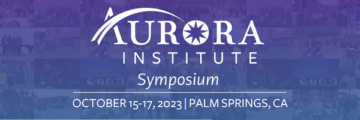
October 2, 2023
UCEA 2023 and K-12 Online Learning
As a follow-up to the previous UCEA Convention Information entry, I looked through the tentative program and here are the sessions I was able to find related to K-12 distance, online, blended, and/or remote learning.
Thursday, 16 November
063. Balancing University–District Questions in Research–Practice Partnerships
Paper Session
3:45 to 5:00 pm
Hyatt Regency Minneapolis: Floor 2 – Greenway CParticipants:
Centering Equity Through University–District Partnership: Transformations Required to Develop an Equity-Centered School Leadership Pipeline?
Abe Tekleselassie, The George Washington University; Jennifer Karyn Clayton, The George Washington University; Rebecca Ann Thessin, The George Washington University; Leslie Brandt Trimmer, The George Washington University; Coleen V., Reyes, The George Washington University
With a focus on one university and its partner urban district in the Mid-Atlantic region of the U.S., this study responds to a call for understanding how equity centered leaders are developed by examining the transformation required to center equity in the leadership preparation program.Factors Influencing Capacity for Improvement in School–Community Partnerships to Reduce Chronic Absenteeism.
Cristina Stanojevich, Michigan State University; Danica Brown, Wayne State University; Bianca Burch, Wayne State University; Sarah Winchell Lenhoff, Wayne State University
We examine factors influencing schools’ capacity to learn from a coalition of external partner organizations implementing the P4 Project—an initiative to reduce chronic absenteeism (CA) in a city with high CA rates. We draw on concepts from organizational learning theory and find that organizational conditions—including leader and staff stability and dedicated time/personnel— mediate the extent to which the partner schools can leverage ideas from the P4 in their policies and routines addressing CA.Fostering Critical Formation: A Research–Practice Partnership.
Martin Scanlan, Boston College; Melodie Wyttenbach, Boston College; Andrew Miller, Boston College; Elena Sada, Boston College
This paper presents an emerging research practice partnership with networks of Catholic schools engaged in critical formation. The goal of this partnership is to develop materials to support educators across public and private sectors in developing innovative and transformative approaches to critical formation.Increasing Computer Science Teacher Capacity and Equity Through a Research–Practice Partnership During COVID-19.
Kathryn Schiller, University at Albany, SUNY; Robin Flatland, Siena College; Jesse Christopher Moya, Siena College; Stacey Hansen, University at Albany, SUNY; Jim Matthews, N/A; Pauline White, N/A
The closing of schools in Spring 2020 due to the COVID-19 pandemic created challenges for all teachers and leaders as instruction shifted to remote and online modalities. This paper highlights how a research-practice partnership supported teachers’ connections with mentors and colleagues necessary to implement a collaboratively redesigned high school computer science curriculum. Voices of teachers and students provide insights into why longitudinal survey data showed no discernible drop in course quality.Facilitator: Kofi Lomotey, Western Carolina University
073-7. Virtual Schools and Social Media Platforms: Exploring the Use of Technology in Schools During COVID and Beyond
Participants:
- Examining Parental Agency for Children’s Education at Home: A Study of Kansans Parents During the Pandemic. Danqing Yin, University of Kansas
- Parents’ Reasons for Choosing a Public Virtual School. Mary Lynne Derrington, University of Tennessee at Knoxville; Jeana Partin, University of Tennessee at Knoxville
- PK12 Pandemic Leadership Innovations: Social Media Platform Review of Principals’ Communications With Stakeholders. Devery J. Rodgers, California State University, Long Beach
081. COVID-19: Principals Navigate the Pandemic in Their Praxis
Paper Session
5:15 to 6:30 pm
Hyatt Regency Minneapolis: Floor 2 – Greenway EParticipants:
Finding Resilience During the COVID-19 Pandemic: Perspectives From Principals of Color.
Meg Stomski, University of California, Berkeley; Aukeem Ballard, University of California, Berkeley; Rebecca Cheung, University of California, Berkeley
This study examines the experiences of principals of color during the COVID-19 pandemic, with a specific focus on stressors and resilience factors that contribute to their well-being. Data were collected from K–12 school principals of color and White principals in California across three time points. Implications for the study include a need to further understand the working conditions of principals of color, to better support their burnout and retention.Leadership Lessons Learned From COVID-19: Voices From Catholic High School Leaders.
Corinne Brion, University of Dayton
Using Smith and Riley’s crisis leadership as a conceptual framework, this qualitative study sought to understand the experiences of lay Marianist private school leaders during COVID-19. Currently, there are a limited number of qualitative studies that examine the experiences of Marianist school leaders in times of crisis. This study aims to fill the gap in the literature while also proposing an equity-focused crisis leadership model and providing recommendations to practitioners.Masking Emotions: School Leaders’ Response to the COVID-19 Pandemic.
Isela Pena, University of Texas at El Paso; Rodolfo Rincones, University of Texas at El Paso
This study focuses on the impact of COVID-19 on the well-being of school leaders. Specifically, we examine how emotions in leadership intersect with the school leaders’ negotiation of their own well-being during the COVID-19 crisis. Utilizing the literature on emotions and school leadership (Beatty, 2007; Hargreaves, 2001; Hochschild, 1983), findings suggest that school leaders masked their emotional response to the COVID-19 pandemic, jeopardizing the well-being of their school communities, their families, and their own.School Administrators’ Leadership Experiences During the COVID-19 Crisis in Texas, USA.
Nathern S. A. Okilwa, University of Texas at San Antonio; Bruce Barnett, University of Texas at San Antonio
COVID-19 presented unprecedented disruption to the education systems across the globe. The purpose of this article is to highlight the aftereffects of the COVID-19 pandemic on schools and examine how school leaders addressed these challenges. This qualitative study utilized an online survey to collect the perspectives of school leaders on the challenging circumstances of the pandemic. The findings are organized by (a) leadership experiences during the pandemic, (b) additional knowledge and skills, and (c) suggestions for preparation programs.School Priorities in the COVID-19 Pandemic.
Adam Kho, University of Southern California; Lam Pham, North Carolina State University; Mario Jackson, North Carolina State University
The rapid transition to virtual learning in March 2020 meant that schools were unable to provide services in ways they previously did and had to make decisions on how to prioritize students’ needs. In this study, we use nationally representative survey data of school leaders to examine how schools prioritized academics and instruction, social and emotional well-being, physical health, and behavior of students both during school building closures and in plans for school building reopening postpandemic.Facilitator: Carol A. Mullen, Virginia Tech
Saturday, 18 November
237. Virtually Possible: Reimagining the Role of Technology in Schools
Paper Session
2:40 to 3:50 pm
Hyatt Regency Minneapolis: Floor 2 – Greenway EParticipants:
Emergency Remote Teaching and Leadership Support at the Middle Level: Teachers Weigh in.
Susan C. Badger, George Washington High School; Carol A. Mullen, Virginia Tech
This qualitative study examined middle school teachers’ perceptions of leadership responsibility and support during emergency remote teaching (ERT). Research questions were: How was leaders’ support for ERT perceived? What were beliefs about student attendance and virtual education? After 15 teachers at a rural middle school completed a survey, six were interviewed one-to-one. Six findings illuminated areas of leadership responsive to teaching virtually. Support varied for assisting faculty in their adaptation to/effectiveness with remote instruction.Principal Leadership in Tennessee Approved K-12 Public Virtual Schools.
Jeana Partin, University of Tennessee at Knoxville; Mary Lynne Derrington, University of Tennessee at Knoxville
This qualitative study explored Tennessee’s virtual public school K-12 principals’ instructional leadership and development of a social presence. Semistructured interviews were conducted with virtual school principals in Tennessee. Findings suggest that they are intrapreneurs adept at developing a social presence with students, teachers, and parents. Principals in virtual schools have a degree of autonomy in instructional leadership responsibilities, including curriculum selection and staffing. Furthermore, they are both flexible and technologically competent in meeting students’ needs.Reimagining Schools With Technology: Perceptions of School Leaders and Teachers.
Miguel Gonzales, University of Nevada, Las Vegas; Iesha Jackson, University of Nevada, Las Vegas
This case study examines the perceptions of reimagining the school experience with technology. Interviews with the principal, four assistant principals and 15 teachers were conducted. A total of 31 out of 55 teachers were surveyed. Preliminary findings suggested three themes: (a) the need to personalize learning, (b) personalize professional development for teachers; and (c) reimagining classroom space and structure. Findings suggest a call to reconsider technology use and classroom spaces.The Essential Aspects Framework: A New Framework for Understanding Educational Technology Decision-Makers.
Adam John Hocker, Pennsylvania State University
This qualitative study puts forth a new framework for understanding the skills and knowledge brought to the educational technology decision-making process in schools districts and other LEAs by those who are charged with making the decision. The new framework is comprised of three Essential Aspects, Technology Vision, Relationship with Technology, and Position in Organization that encapsulate the skills and knowledge an individual or institution draws on when making educational technology decisions.Facilitator: TBD
No comments yet.
RSS feed for comments on this post. TrackBack URI
- SEO Powered Content & PR Distribution. Get Amplified Today.
- PlatoData.Network Vertical Generative Ai. Empower Yourself. Access Here.
- PlatoAiStream. Web3 Intelligence. Knowledge Amplified. Access Here.
- PlatoESG. Carbon, CleanTech, Energy, Environment, Solar, Waste Management. Access Here.
- PlatoHealth. Biotech and Clinical Trials Intelligence. Access Here.
- Source: https://virtualschooling.wordpress.com/2023/10/02/ucea-2023-and-k-12-online-learning/
- :is
- 07
- 15%
- 16
- 2001
- 2020
- 2023
- 30
- 31
- 40
- 50
- a
- Able
- About
- academics
- across
- Adam
- adaptation
- Additional
- addressed
- addressing
- adept
- After
- agency
- aims
- All
- also
- an
- and
- Andrew
- approaches
- approved
- ARE
- areas
- article
- AS
- aspects
- Assistant
- assisting
- At
- attendance
- Autonomy
- b
- Badger
- balancing
- begin
- behavior
- beliefs
- Berkeley
- Better
- Bianca
- boston
- both
- brought
- brown
- Bruce
- Building
- by
- CA
- california
- call
- CAN
- Capacity
- Carolina
- case
- case study
- Category
- Center
- centered
- challenges
- challenging
- charged
- choosing
- Christopher
- circumstances
- City
- closing
- coalition
- colleagues
- collect
- College
- color
- comment
- comments
- Communications
- Communities
- competent
- Completed
- Comprised
- computer
- computer science
- concepts
- conceptual
- conditions
- conducted
- Connections
- contribute
- Convention
- course
- Covid
- COVID-19
- COVID-19 Crisis
- COVID-19 pandemic
- created
- crisis
- critical
- Currently
- Curriculum
- data
- decision
- Decision Making
- decision-makers
- decisions
- dedicated
- Degree
- develop
- developed
- developing
- Development
- DID
- Disruption
- distance
- district
- draw
- draws
- Drop
- due
- during
- during COVID-19
- Education
- educational
- educators
- el
- emergency
- emerging
- Emerging research
- emotional
- emotions
- end
- engaged
- entry
- equity
- essential
- examine
- Examines
- Examining
- experience
- Experiences
- Explored
- Exploring
- extent
- external
- factors
- families
- feedback
- fill
- Find
- findings
- flexible
- Floor
- Focus
- focuses
- For
- formation
- forth
- four
- Framework
- from
- further
- Furthermore
- gap
- George
- globe
- goal
- had
- Have
- Health
- here
- High
- Highlight
- highlights
- Home
- How
- How To
- HTTPS
- i
- ideas
- identifier
- Impact
- implement
- implementing
- implications
- improvement
- in
- include
- Including
- individual
- influencing
- Initiative
- innovations
- innovative
- insights
- Institution
- instructional
- interviewed
- Interviews
- into
- ITS
- Jackson
- Jennifer
- Jim
- John
- knowledge
- Lam
- LAS
- Las Vegas
- lay
- leader
- leaders
- Leadership
- LEARN
- learned
- learning
- Lessons
- Lessons Learned
- Level
- Leverage
- Limited
- literature
- Long
- looked
- make
- Making
- March
- march 2020
- Mario
- Martin
- materials
- meant
- Media
- meeting
- Meta
- Michael
- Michigan
- Middle
- Miller
- modalities
- model
- mullen
- nationally
- Navigate
- necessary
- Need
- needs
- negotiation
- networks
- NEVADA
- New
- no
- North
- north carolina
- number
- of
- on
- ONE
- online
- Online Learning
- or
- organization
- organizational
- organizations
- Organized
- Other
- out
- own
- pandemic
- Paper
- parents
- partner
- Partnership
- partnerships
- Pennsylvania
- perceived
- personalize
- perspectives
- Pham
- physical
- Physical health
- pipeline
- plans
- platform
- Platforms
- plato
- Plato Data Intelligence
- PlatoData
- pm
- points
- policies
- position
- possible
- Post
- practice
- preparation
- presence
- presented
- presents
- previous
- previously
- Principal
- principals
- Prioritize
- prioritized
- private
- process
- professional
- Program
- Programs
- proposing
- provide
- provide services
- providing
- public
- purpose
- Puts
- qualitative
- quality
- Questions
- rapid
- Rates
- really
- reasons
- recommendations
- reconsider
- reduce
- region
- related
- relationship
- remote
- remote learning
- representative
- required
- research
- resilience
- resource
- response
- responsibilities
- responsibility
- responsive
- retention
- review
- Robin
- Role
- routines
- Rural
- s
- San
- School
- Schools
- Science
- Sectors
- selection
- Services
- sessions
- shifted
- showed
- Simple
- site
- SIX
- skills
- Social
- social media
- social media platforms
- sought
- Southern
- Space
- spaces
- spam
- specific
- specifically
- spring
- Stability
- Staff
- staffing
- stakeholders
- State
- structure
- Student
- Students
- studies
- Study
- suggest
- suny
- support
- Supported
- Survey
- surveyed
- Susan
- syndication
- Systems
- TAG
- teacher
- teachers
- Teaching
- Technology
- tennessee
- texas
- that
- The
- their
- themes
- theory
- There.
- These
- they
- this
- those
- three
- Through
- time
- times
- to
- Total
- Transformation
- transformations
- transformative
- transition
- u.s.
- unable
- under
- understand
- understanding
- university
- University of California
- University of Southern California
- unprecedented
- urban
- USA
- use
- uses
- using
- utilized
- Utilizing
- VEGAS
- virginia
- Virtual
- virtual education
- virtually
- vision
- VOICES
- was
- washington
- ways
- we
- weigh
- were
- Western
- What
- when
- which
- while
- white
- WHO
- why
- with
- WordPress
- working
- yet
- Your
- zephyrnet



![[JOFDL] JOFDL Issue 26 (2) now released!](https://platoaistream.net/wp-content/uploads/2023/02/jofdl-jofdl-issue-26-2-now-released.jpg)








